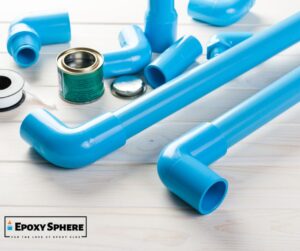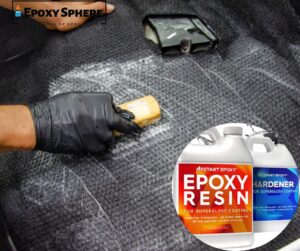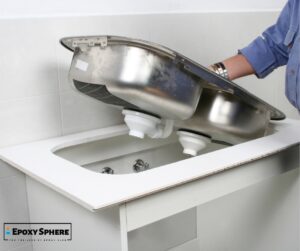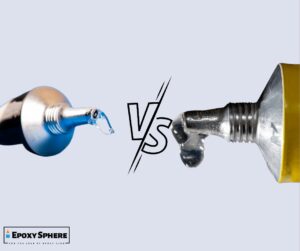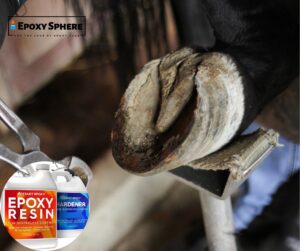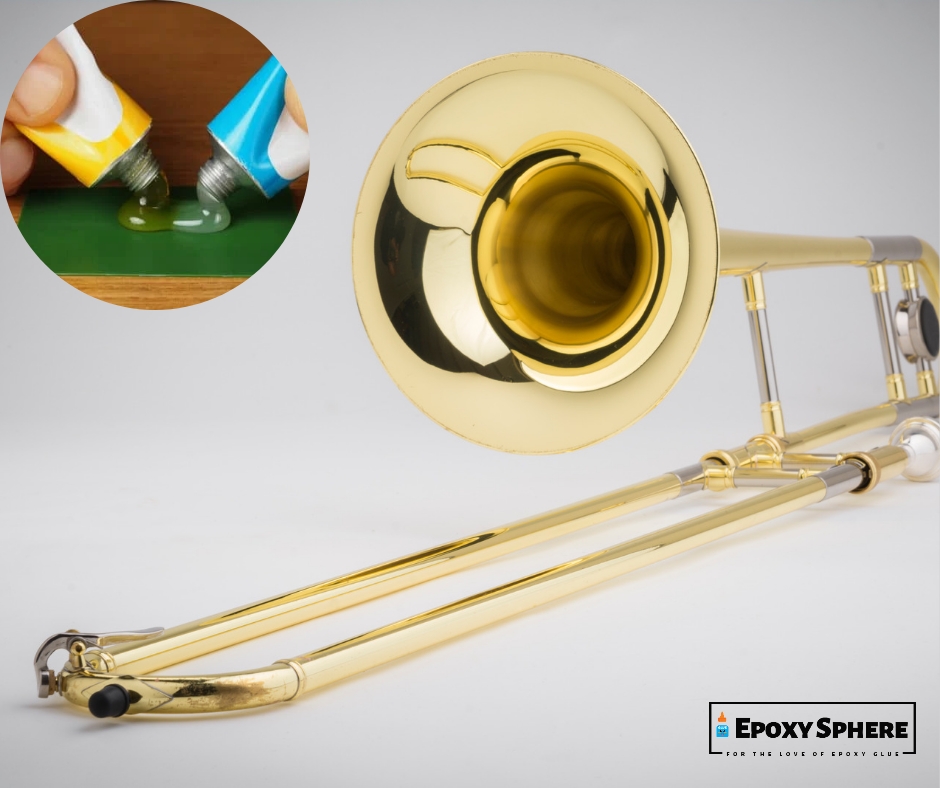
Glue is a handy tool to have around, but can you use epoxy glue on a trombone? We get this question a lot, “Can You Use Epoxy Glue on A Trombone?”. And the answer is: it depends. Different glue works better for different applications, and it’s important to choose the right glue for the job.
If you’re trying to fix a crack in your trombone, epoxy glue might be the best option. But if you’re just looking to attach a mouthpiece or another accessory, a different type of adhesive might be more appropriate.
In this post, we’ll inspect epoxy glue and discuss what it entails when used on trombones. We’ll also give you some tips on how to use it safely and effectively.
What Is Epoxy Glue?
Epoxy glue is a two-part adhesive that comes in a tube or a bottle. It’s what’s known as a “cold weld” because it cures and bonds when it comes into contact with moisture.
It’s a really strong adhesive, which is why it’s often used for repairs. And the great thing about epoxy glue is that it can be used on just about any material, including metal, plastic, and glass.

Epoxy Glue Safety Tips
Before we get into the nitty-gritty of whether epoxy glue is a good choice for your trombone, let’s take a look at some safety tips. Here are seven things you need to keep in mind when using epoxy glue:
- Make sure you’re using the right epoxy glue. There are two types of resin and hardener. Make sure you mix them together in the right proportions.
- Always read the instructions carefully before using epoxy glue.
- Epoxy glue is toxic, so make sure you’re wearing gloves and a mask when you’re working with it.
- Don’t use epoxy glue on porous surfaces, like wood or paper.
- Make sure the surface is clean and dry before you apply the epoxy glue.
- Epoxy glue sets quickly, so make sure you’re ready to work with it when you mix the two components together.
- Epoxy glue can be messy, so make sure you’re working in a well-ventilated area.
Can You Use Epoxy Glue on a Trombone?
Yes, you can use epoxy glue on a trombone. However, it is important to note that epoxy glue is not as strong as metal, so you will need to be careful when using it. Make sure that you do not put too much pressure on the glue, or it may break. If you are careful, epoxy glue can be a great way to repair a trombone.
Pro Tips for Using Epoxy Glue on a Trombone
Now that we know a little about epoxy glue, let’s move on to the tips for using it on a trombone.
- Make sure the surfaces are clean and dry before you glue.
- If you’re using a clamp, use a soft cloth to protect the finish of the trombone.
- Use just enough glue to hold the pieces together. You don’t want it oozing out everywhere.
- Don’t stress if you get epoxy glue on your hands. It’s easy to remove with soap and water.
- Give the glued pieces plenty of time to dry before trying to play your trombone again.
- Keep epoxy glue away from heat and flame.
How Do You Glue a Trombone with Epoxy Glue?
In order to glue a trombone with epoxy, you will need:
- Epoxy Glue
- A Glass Plate
- A Bowl
- Cotton Balls
- Distilled Water
- Soap
First, take the bowl and fill it with enough distilled water to submerge the glass plate. Next, add a few drops of soap to the water. Place the trombone on the glass plate and use cotton balls to apply pressure to all the joints that need to be glued.
Make sure the epoxy glue is mixed thoroughly before applying it to the trombone. Gently apply the glue to each joint and hold it in place for about 10 minutes. Let the glue dry for 24 hours.
What Kind of Glue Should You Use on Trombone?
Well, the answer to this question is a little complicated. It depends on the type of trombone you have, and what exactly you’re trying to glue.
For example, if you have a brass trombone, you can use epoxy glue. But if you have a plastic trombone, you need to use a different glue.
In general, though, you want to use glue that’s strong and durable. That way, it’ll hold the joint together and keep your trombone in good shape for years to come. Examples include, but are not limited to, the following:
1. Epoxy Glue
Epoxy glue is a strong, durable type of adhesive that can be used on a variety of materials, including metal, glass, and plastic. It sets quickly and can be sanded or painted once it’s dry.
2. Super Glue
Super glue is another strong option for bonding trombone parts. It’s less messy than epoxy and sets more quickly, but it’s not as durable.
3. Cyanoacrylate Glue
Cyanoacrylate glue, also known as “CA glue” or “super glue”, is a fast-drying adhesive that’s ideal for small repairs. It sets quickly and bonds well to metal, glass, and plastic.
What Are the Drawbacks of Using Epoxy Glue on A Trombone?
Epoxy glue is a two-part adhesive that cures quickly when mixed. It’s often used for repairing and bonding metal, plastic, and glass.
It’s not the best choice for repairing a trombone, for a few reasons. First, epoxy glue is pretty brittle, so it might not hold up under the stress of being played. Second, it’s not as flexible as other types of glue, so it might not move with the trombone as it’s played.
And finally, epoxy glue can be pretty toxic, so you wouldn’t want to get it on your skin or breathe in the fumes.
What Glue Is Used on Instruments?
It’s a fair question and one that deserves a detailed answer. So, what kind of glue is used on instruments?
Well, the answer to that question depends on the type of instrument. For example, woodwind instruments are typically glued with white wood glue, while brass instruments are often glued with contact cement.
But what about a trombone? For that, you could use epoxy glue. This type of glue is incredibly strong and can bond virtually anything together. It’s also waterproof and can withstand high temperatures, making it the perfect choice for a musical instrument that needs to be able to stand up to a lot of wear and tear.
Conclusion
Yes, you can use epoxy glue on a trombone. However, it’s important to make sure that the epoxy glue is compatible with the materials of the trombone. If you’re not sure, it’s best to consult with a professional.

Hi, This is John Davis. After years of working in the construction industry, I decided to create a website that would provide people with information about glue and its exceptional uses. I hope You find it useful

